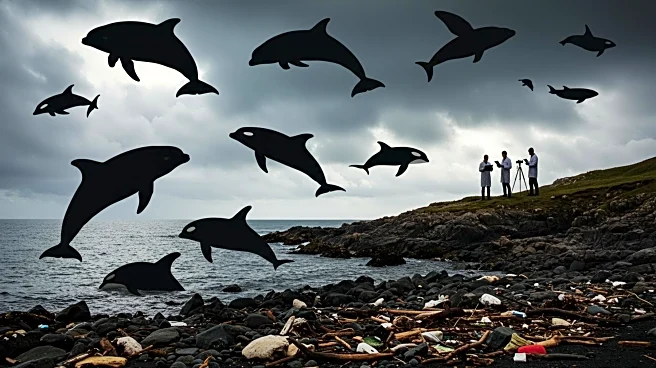What's Happening?
Researchers at the University of Glasgow have reported an exponential increase in marine mammal strandings in Scotland, with numbers rising from about 100 to over 300 annually over the past 30 years. The study, published in Scientific Reports, attributes the rise to factors such as chemical, plastic, and noise pollution, as well as accidental entanglements in fishing gear. The Scottish Marine Animal Stranding Scheme recorded over 5,140 stranded animals between 1992 and 2022, with harbour porpoises and pelagic dolphins being the most affected species.
Why It's Important?
The surge in strandings is a critical indicator of the health of marine ecosystems and the impact of human activities. Declining fish stocks, pollution, and habitat changes due to warming sea temperatures pose significant threats to marine life. The findings emphasize the need for targeted conservation efforts and policies to address these challenges. Understanding the causes of strandings can help in developing strategies to protect marine mammals and ensure the sustainability of marine environments.
What's Next?
The study highlights the importance of public involvement in reporting strandings, which can provide valuable data for research and conservation efforts. Initiatives like the Scottish Entanglement Alliance are working to reduce entanglements and improve response strategies. Continued collaboration between scientists, conservation groups, and policymakers is essential to address the threats facing marine mammals and safeguard the health of marine ecosystems.









